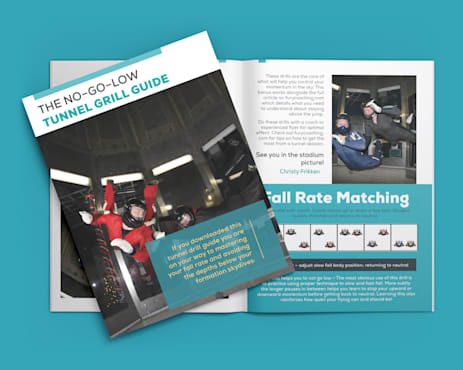Embrace your Fallibility to Stay Safer
Thursday, May 30, 2019

- Christy Frikken
- 5/30/19
- 0
- Safety
All Skydivers are Vulnerable
I’ve observed through my years of skydiving a reaction to accidents that prevents skydivers from truly absorbing meaningful safety changes.
When tragedy strikes, be it a small or big accident, the dropzone buzz immediately churns with news about what actually happened. This is not idle gossip! Understanding what went wrong is a vital way for us to learn vicariously through others mistakes. In happier situations, this can include the lively ‘no-poop-there-I-was’ stories told over beer by the bonfire. In less happy situations we are left to guess and wonder.
The many reasons I am different than the victim
As the facts that mingle with conjecture and hearsay, a fuller story emerges. This story almost always focuses on one single mistake, even though it is often a series of mistakes executed to perfection.
Creating and thinking about this story regardless of its accuracy helps us feel better about our own situation. It is terrifying to realize that the same thing can happen to you. As we mull over this story, the voice in our heads tells us this particular thing would never happen to us.
I always check my gear. I’d never stay altitude unaware. My gear is newer and in better shape. I am stronger/fitter/more experienced/less aggressive than the unlucky person.
Illusory Superiority and Lake Wobegon
Most of this is the natural phenomena of illusory superiority. It is why most of the population believes they are better than average drivers and why all the children in Lake Wobegon are above average
(Lake Wobegon is a reference to an American radio program which closes with the line ‘Well, that’s the news from Lake Wobegon, where all the women are strong, all the men are good looking, and all the children are above average.”. In fact, the phenomena are sometimes called the Wobegon effect)
To a certain extent, this psychological mechanism is protective. If we didn’t have a healthy boost in believing we were immune to these tragedies, the rational course of action would be to stop skydiving. And in reality, the accident rate is relatively low, and the odds are you can participate in the sport without any major incident.
The flip side of this thinking though is the sometimes premature dismissal of the circumstances. Human beings are pretty amazing machines, but they are far from perfect. We have a lot of bugs in our operating system. People become addicted to gambling despite terrible odds, drives fail to see the motorcycle turning even though we are looking right at it, and athletes blunder regularly despite thousands of hours of practice. The bottom line is we are fallible.
Listen to the small voice acknowledging that you really could make that same mistake.
Let this fuel some focus on more permanent safety habits you can develop to avoid the situation entirely. Look for the series of errors and take steps to seal up the holes in your safety plan.
Newish to the sport? Check out Fresh Meet at Skydive Perris. You’ll learn skills and safety while having a blast!
Further Reading
-
Dunning, David; Kerri Johnson, Joyce Ehrlinger and Justin Kruger (2003). "Why people fail to recognize their own incompetence". Current Directions in Psychological Science12 (3): 83–87. doi:1111/1467-8721.01235.
-
E. Giladi & Y. Klar (2002). "When standards are wide of the mark: Nonselective superiority and inferiority biases in comparative judgments of objects and concepts". Journal of Experimental Psychology: General131 (4): 538–551. doi:10.1037/0096-3445.131.4.538.



